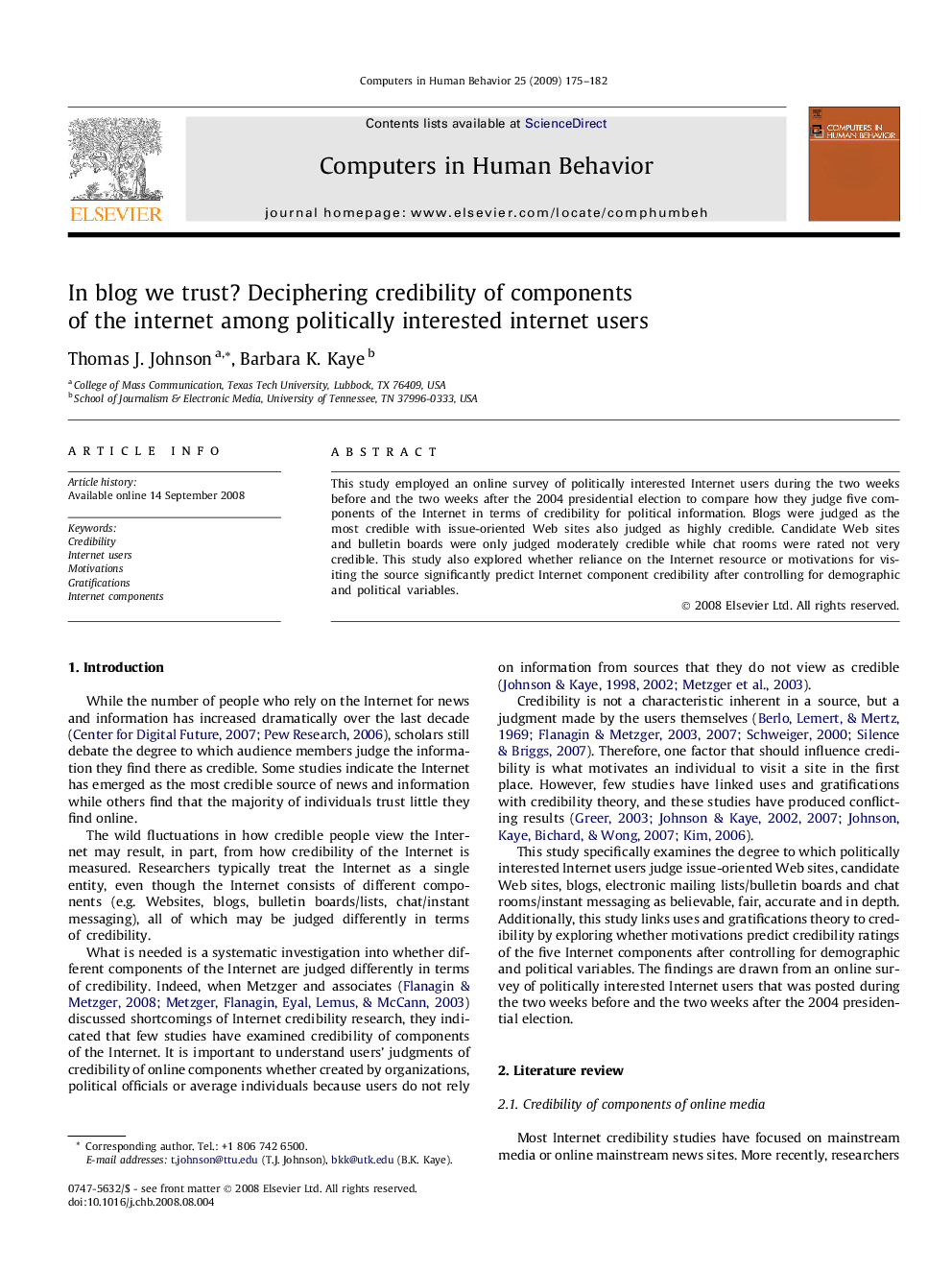| Article ID | Journal | Published Year | Pages | File Type |
|---|---|---|---|---|
| 352311 | Computers in Human Behavior | 2009 | 8 Pages |
Abstract
This study employed an online survey of politically interested Internet users during the two weeks before and the two weeks after the 2004 presidential election to compare how they judge five components of the Internet in terms of credibility for political information. Blogs were judged as the most credible with issue-oriented Web sites also judged as highly credible. Candidate Web sites and bulletin boards were only judged moderately credible while chat rooms were rated not very credible. This study also explored whether reliance on the Internet resource or motivations for visiting the source significantly predict Internet component credibility after controlling for demographic and political variables.
Related Topics
Physical Sciences and Engineering
Computer Science
Computer Science Applications
Authors
Thomas J. Johnson, Barbara K. Kaye,
